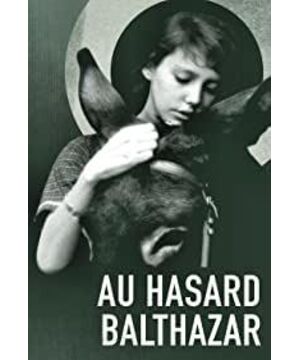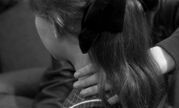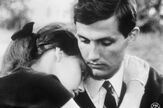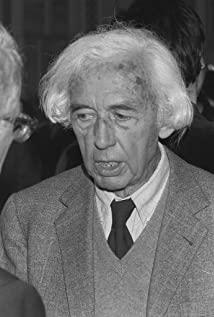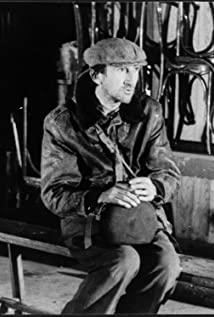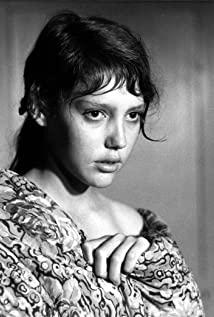{The curly brackets{} in the text are added by the translator. }
Mask and Feather Le Masque et la Plume , 30 April 1966, France Inter
François-Régis Bastide: What does The Encounter of Balthazar mean to you as a start? How did you first come up with the idea for this film?
Robert Bresson: The film came automatically. We never know how ideas come about: they always come unexpectedly. But this idea of a donkey as a character in a film first came to me with an unusual force a few years ago.
Bastide: You decided before that you would one day make a film about a little donkey?
Bresson: A little donkey? ! We follow a donkey until its death. This is far different from Cadichon or Memoirs of a Donkey . This is a tragedy, a cruel story. And it chased me and stalked me. I work on it, I quit working on it, and pick it up again. Picked it up after giving it up for a long time because its writing was so difficult. Finally, I said to myself: If I don't do it now, I'll never do it. Then last spring, I finished a draft of it - if this stage of things was really possible to "finish" it.
Two storylines presented to me. The first is that we will identify with a donkey's life the same way we see a person's life: childhood (care); maturity, both human and donkey's (work); then talent or genius; finally, in The mysterious stage before death. Another is that the donkey will be passed from one master to another, and each master will represent a human sin. Every master will suffer because of it, in different ways, and eventually die because of it.
It's easy to follow one storyline and then another. Combining them is harder.
First, there's the obvious challenge of keeping the storyline close to the donkey's life; the donkey must always be there (or nearby, not far). And then, it's difficult not to make the film a series of small episodes, or to be too blunt, too systematic; most importantly, I want the film to reflect when we are faced with a The agitation and intense emotion of a similar character to Charlotte in the film, and yet it is an animal, a donkey, in all its purity, serenity, quietness, holiness.
Bastide: What prevents your film from becoming a series of miniplots - fortunately - is that it has central characters, a girl and a man. A man in a black shirt (I don't know if you can identify him by his clothes as easily as I do) and a passionate girl who has been with the donkey almost his entire life.
Bresson: Yes, it soon became clear to me that the donkey would have a very stable life - which is the source of its beauty - and that this stable life would not be sufficient in itself to provide A dramatic arc. So I thought about intertwining it with a parallel character who sometimes appears and sometimes disappears, but is always in the background and will provide a theme for the main storyline. At the same time, there are some occasional parallels with other characters: the character Arnold is, say, sort of a bum, and shares a certain tragic quality with the donkey. The donkey would stay by his side and accompany him into misery.
Bastide: You've said in an interview or something - maybe you don't remember which one - that a film, for you, is more of an act of writing and less of a movie drama. You even said, in my opinion, that a film is not a play: it is an act of writing. In what way is Balthazar an act of writing and a drama at the same time?
Bresson: But no, a film cannot be like a play. First, because a play absolutely needs a living presence, flesh and bone. In mainstream films, which I call "filmed plays," people act as if they were in a play, the actors are asked to dramatize in front of the camera, and the camera is lowered to record the actor's performance. The camera, this incredible, transcendent machine, is reduced to a tool of representation. I want the camera to be a tool for creation. But because of the power of theatrical habit, the audience calls for drama, for imitation and theatricality, for theatrical demeanor, for tune-in. If we don't give them that, the audience doesn't understand what they're seeing. Not just the audience, but the critics too.
Bastide: Yes, but for example, your character Arnold, the tramp you just described: I actually want to contradict you. You say "no manners, no theatre". Now, I distinctly remember a scene in the film where he clumsily escapes being beaten on the head with a heavy weapon - either the director or the actor (he's not an actor, a performer) for this clumsiness - but it's clear that, What you're after is an exaggerated response. I guess you'll tell me I'm completely wrong?
Bresson: No, that's not theatrical. totally not. A theatre actor can project, and often he projects so far in front of himself that nothing remains, not even his own image. This image is hollowed out. What I ask of my performers, on the contrary, is that they stay within themselves, that they lock themselves up and don't give anything. However, then I went over and took out everything they were hiding. That's my point of interest.
Bastide: But isn't it still difficult for you (you must have been asked this question a hundred times) - I mean the real challenge of using non-actors; because you find Two very different people, François Mauriac's granddaughter, she's awesome, and Pierre Klossowski, who's scary , adding a diabolical presence to the film, allowing them to "act"? Get a girl - maybe a student - or someone especially like Krosowski for whom "Sade is my closest neighbor" (from one of his books title) and then saying "do this now" is easier or harder for you?
Bresson: That's not a problem for me. I had no choice; I just couldn't do what I did to an actor, even if the actor tried to conform to my way, to try not to control himself, not to monitor himself. I just can't do it.
Bastide: You're going to figure it out, as you did with Maria Casarès in "Ladies of the Bois de la Bois," for example.
Bresson: It's not the same thing at all. I can not do it. I'm writing more and more minimally now; I'm trying more and more to capture the rarest of my protagonists, it's so subtle that it's impossible for an actor to offer me, because actors always wear masks. The actor's mask exists to hide him. Actors hide behind their performances.
Bastide: I just remembered something: this hero, this girl. I think she's the sexiest person I've ever seen in a movie, even though she has a shy voice and her face is set in stone (she's the opposite of Jeanne Moreau, if you will if). But how sexy this is! It's amazing.
Bresson: She doesn't have a shy voice! She has a wonderful voice, a little restrained, a little hoarse, but wonderful.
Bastide: There's even a scene where two young men look at her standing next to the donkey, and they say, "Do you think she really loves it?" And then another says, "You're crazy! No— A donkey? Impossible!" But there was something more than friendship between the donkey and this beautiful girl.
Bresson: I can express the central idea of the film by saying it's about the dissonance and intensity of our emotions in front of the donkey. This donkey, although it is a bit like Chaplin's Charlotte, is an animal, and an animal destined to be associated with eroticism—Greek eroticism—with which At the same time, it has a spirituality, or a Christian mysticism: the donkey is represented in at least eighty of our churches and Catholic cathedrals, and it is featured in two covenants—the Old and New Testaments. "-- in the animal creation has an important position. So it is a very important animal. There are some erotic scenes, but none of these scenes are erotically "acted" because they are "acted" separately. Each protagonist "acts" individually: one "acts" her play near Versailles, while the other, the one who reacts, "acts" in Gap. I mean, the art of cinema, which I (with Cocteau) call "film writing" as opposed to "movie" (which I call "photographed play"), is essentially An art of relationship. An image is what it is in isolation. It's not the same thing when it's next to another image. That's why the tone I use is so indirect, why the images I use are flattened, the way you flatten the fabric with an iron.
Bastide: Yes, you flatten them—but, still the same, when you encounter beautiful images, when you encounter beautiful landscapes, when beautiful light can be used, you do it, don't you? ?
Bresson: Actually, I don't.
Bastide: They are not beautiful images in the sense of beautiful photographs, of course. Not a photograph of a craftsman, not a framed image.
Bresson: What I'm saying to you is that in this art form that puts pressure on the image, the viewer has to abandon his idea of the image. He had to drop the idea entirely and instead plunge into a rhythm that would transport him. Rhythm has never been more important than in any other art. Something that would be immediately forgotten becomes unforgettable when it meets in a rhythm.
Bastide: There's something really moving about it. I don't want to name the film we just saw this morning at a pre-release screening - but I couldn't watch it patiently. However, it is the work of a famous filmmaker (cinéaste). I found the actors dramatized to the extreme. I found the framing of the lens to be human-friendly. There's always just the right amount of light falling on someone's hair, or a faint reflection on the side of a car. You all wisely avoided all this. And what I can't understand is that other people still don't understand your teachings better, you are a master without disciples. You have many, but I don't think any of them have really understood your teachings.
Bresson: Maybe it's because there's a kind of movie that's like a big army camp, where everyone is doing the same thing. It's a land of clichés, and if you shy away from clichés you're likely to make a movie that ends up in a drawer. You must be very careful. Anyway, what might happen, what might happen to me, is that I won't get the chance to make another film. I have to be very cautious. But you know, I blame myself. If I wanted to hire movie stars and actors, I would be rich. On the contrary, I am not rich, I am poor.
Bastide: I experienced something profound, but not a very religious feeling, in other words, the underlying religious fervor of the film. It hits at that extraordinary moment when we see donkeys passing by a herd of cages full of animals. We see the eyes of tigers, the eyes of elephants, we see the eyes of all these animals. And before that, we've only seen human eyes, and they're no more valuable. There is a cruelty in all these creations, a meanness. Only the eyes of a donkey are good.
Bresson: It took me two films to understand that music, along with other elements in a film, such as images, such as sounds, such as words - these elements need to be transformed into each other. So the music must never be an accompaniment or reinforcement, as it is in almost all films. On the contrary, it must be an element of transformation. I'll give an example: in "Dead Man Escape," there's the ritual of going out into the yard and dumping the bucket. So I put the most spiritual music, or Mozart's most spiritual music, there, and I turned this chore into an almost religious ritual.
For me, music played an additional role in preparing for silence. Because you will see a lot of silence in my videos. I think that's very rare in a cinematic product, in a "filmed drama". I will never understand why the music starts as soon as the characters stop talking!
Bastide: Because there is a fear of boring people, a fear of silence.
Bresson: Yes, the greater the fear of boredom, the louder the music.
Bastide: You just said you were trying to capture the rarest moments of your characters. I want to know how you do it.
Bresson: I believe in automatism. I believe most behaviors in our lives are automatic. Cinematography itself is the antithesis of the logical, thoroughly rationalized aspect of drama—the actor practicing his role. Practicing your role is thinking about words, thinking about manners. That's the thing that lacks authenticity the most. You don't know why you put your hand there - where your hand puts itself entirely on its own. Why did you just turn in that direction? You don't ask your head to do that...I try to achieve this through extremely fast and frequent rehearsals, so the mind will have nothing to do with the action. I also throw my protagonists - in a completely automatic way - where I release them into the plot that I have for them. I also ask them one thing: "Don't think about what you're doing, don't think about what you're saying." For me, without convention and reservations, there is no emotion. So I want the plot and the words to be ordinary, automatic things, so that when they are released into the action of the film, the relationship creates itself. There is a relationship between actions {between}. There is a relationship between a person's voice and steps. I didn't foresee them, and neither did my protagonists.
Bastide: Yes, but what is it that strikes us emotionally?
Bresson: You are impressed because this is, precisely, a re-creation! You cannot achieve life by copying it, you have to recreate it. I recreate it using elements taken from naked reality. And when you place those elements, be it sounds or images, next to each other, suddenly there is a life-creating transformation. But this is not the life of nature, nor the life of the drama, nor the life of the novel. This is life written by film.
Bastide: Robert Bresson, listen, I'm sure we've heard from you for a long time. I want to say thank you very much, and wish "The Encounter of Balthazar" (in "Mask and Feather" here and elsewhere) the good fortune it deserves - according to the word in the Bible meaning. I thank you very much, Robert Bresson.
Notes:
The Mask and the Feather ( Le Masque et la Plume ), a literary criticism program launched by Radio France Internationale in 1955, broadcasts on Sundays and continues to this day. The founders are Michel Polac and François-Régis Bastide.
The French public radio station founded by France Inter in 1947 has been in operation so far, and its political orientation is dominated by the left. Formerly known as Club d'Essai (1947), Paris-Inter (1947-1957), France I (1957-1963), RTF Inter (1963), and now the superior unit is Radio France (Radio France). In addition to FM radio, Internet business has also been launched.
François-Régis Bastide (1926-1996) French World War II soldier, writer, radio presenter, diplomat, and politician.
Memoirs of a Donkey (1860) Russian-born, 1817-immigrated to France novel by the French writer Comtesse de Ségur (1799-1874), known for her children's literature. The protagonist is a donkey named Cadichon, and the time span of the story does not include his death; although he has changed hands several times and experienced hardships, the ending is positive.
Charlotte (Charlot), also known as "The Tramp" (The Tramp), a famous screen image of Chaplin's silent period, appeared in many works from 1914 to 1936. He was like a child, clumsy, kind-hearted, and sometimes cunning, and despite his low status, he tried to be gentle in his speech and dignity.
Dramatic arc German writer Gustav Freytag (1816-1895) proposed a five-act dramatic structure in Die technik des Dramas (1863) The system, that is, dividing a play into five parts: exposition, ascending action, climax, descending action, and ending, was later called the "Flatarch Pyramid", and some people called it the dramatic arc.
François Mauriac (1885-1970) French writer, poet, journalist, Catholic, winner of the 1952 Nobel Prize in Literature. Most of his novels are about the conflict between faith and the flesh. The eldest son, Claude, is also a writer; the granddaughter, Anne Wiazemsky, plays Marie in the film.
Pierre Klossowski (1905-2001) French writer, translator, painter, film actor and screenwriter. In this film, he plays a greedy grain merchant. In -depth research on the Marquis of Sade, author of "Sade, my neighbor" ( Sade mon prochain ) (1947). His painter brother was also named Baltazar.
Marquis de Sade (1740-1814) French aristocrat, revolutionary statesman, philosopher, writer, spent about 30 years of his life in various prisons and a mental hospital. Known for its promiscuous sex life, and an advocate of absolute freedom that is not restricted by morals, beliefs, and laws, the term "sadism" has become a generic term for sexual sadism in the West.
Maria Casarès (1922-1996) was a French theatre actress who also acted in film and television. Born in Spain, she immigrated to France with her mother during the Civil War. Played Hélène in Ladies of the Bois de Boulogne.
Jeanne Moreau (1928-2017) French actress, screenwriter, director, singer, starred in more than 140 film and television works, and won many awards. He starred in the 1960 film version of "Conversations with Carmelite Sisters".
Eroticism comes from the Greek word "ἔρως" (eros, desire), which is also the name of the god of love in Greek mythology "Eros". Refers to a sexually arousing quality that can be present and applied in various works of art; also a philosophical meditation on the aesthetics of sexuality, sensuality, and romantic love; also refers to the state of aroused or expected sexuality , or persistent sexual urges, desires. In the ancient Greek philosopher Plato (Plato, 428/427/424/423-348/347 BC) in his work Symposium , erotic desire is almost a transcendent expression, because a The beauty of the individual reminds us of true beauty in the world of ideas, and also because a subject seeks to transcend itself to form a communion with an object; in the Phaedrus , erotic love refers to a kind of madness or "" The Madness of God" (θεία μανία).
Versailles is located in Yvelines, France, a city on the western outskirts of Paris. Once the capital of the Kingdom of France, it is famous for the Château de Versailles, the palace of Louis XIV.
Gap is a town in southeastern France and the capital of the Hautes-Alpes department.
Jean Cocteau (1889-1963) French poet, novelist, designer, playwright, screenwriter, artist, director, is a cultural celebrity. Writer of the lines for Bresson's Ladies of the Bois de Boulogne.
Cinéaste also means film fans and film workers in general.
Wolfgang Amadeus Mozart (Wolfgang Amadeus Mozart, 1756-1791) was an Austrian composer who belonged to the classical era. He was prolific and influential. He wrote the music used in "Death Escape".
The earliest neurological term, automatism, refers to a brief set of unconscious behaviors; generally seen in patients with epilepsy, or as a side effect of certain drugs; to varying degrees. Austrian psychoanalyst Sigmund Freud (1856-1939) used free association or automatic writing or drawing to explore the patient's subconscious. At the beginning of the twentieth century, artists also began to advocate automatic writing and painting, such as The Book of Pleasure by the English painter and occultist Austin Osman Spare (1886-1956). ) (1913); another example is the French writer and poet André Breton (1896-1966) who defined surrealism in his Manifeste du surréalisme ( Manifeste du surréalisme ) in 1924. The automatism of pure mind".
Good fortune comes from the "Bible" Old Testament • Genesis 30:11 "Leah said: 'Good luck!' So he named him Gad."
View more about Au hasard Balthazar reviews


